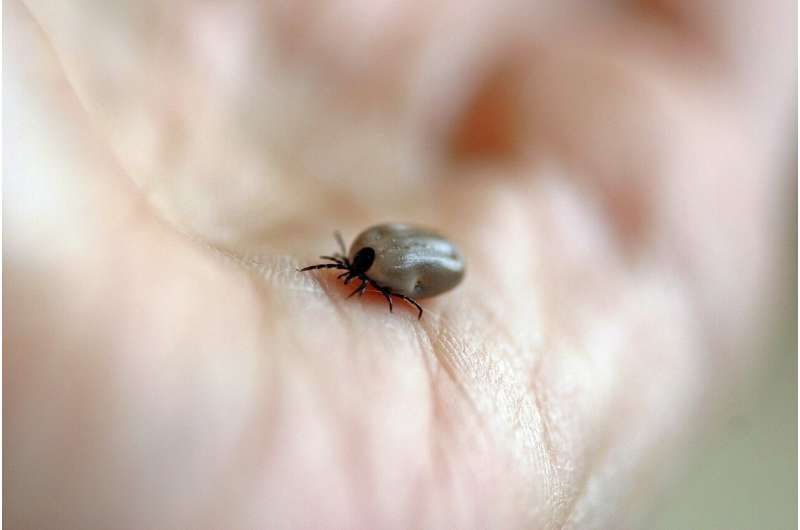This article has been reviewed according to Science X's editorial process and policies. Editors have highlighted the following attributes while ensuring the content's credibility:
fact-checked
peer-reviewed publication
proofread
Study shows host adaptation drives genetic variation in Lyme disease bacteria

A study looks at the mechanisms behind genetic variation in the bacteria that cause Lyme disease. Lyme disease is the most common vector-transmitted disease in the United States, with around 476,000 human cases annually. Most Lyme disease is caused by the bacteria Borrelia burgdorferi (Bb), which is transmitted by ticks and can infect a wide range of mammals and birds.
Matthew Combs and colleagues analyzed the genetic diversity of Bb, specifically focusing on the pathogen's outer surface protein C (ospC) gene, a well-known virulence factor that is essential for survival of the pathogen inside the tick and the early stages of infection in vertebrates. The work is published in the journal PNAS Nexus.
This highly polymorphic locus was sequenced using a long-read high-throughput technique from bacteria collected from 553 white-footed mice and 92 passerine birds from 11 species, which were then tagged and released—as well as from 628 tick nymphs. The samples were collected on Block Island, RI between 2013 and 2020.
The authors found a wide range of genotypes, but the dominance of variants did not shift over time, as one might expect if variation was driven by negative frequency-dependent selection. Instead, the different genotypes correlate with host species, suggesting that ospC varies in a host-dependent fashion with strong immunological linkages.
Supporting this multiple niche polymorphism hypothesis, mouse-adapted genotypes were more likely to persist in mice than other genotypes. The results support the idea that pathogens adapt to their animal hosts at the variant level, and suggests that a more nuanced definition of 'host competence' incorporating an understanding of pathogen diversity is warranted, according to the authors.
More information: Matthew A Combs et al, Host adaptation drives genetic diversity in a vector-borne disease system, PNAS Nexus (2023). DOI: 10.1093/pnasnexus/pgad234
Journal information: PNAS Nexus
Provided by PNAS Nexus




















